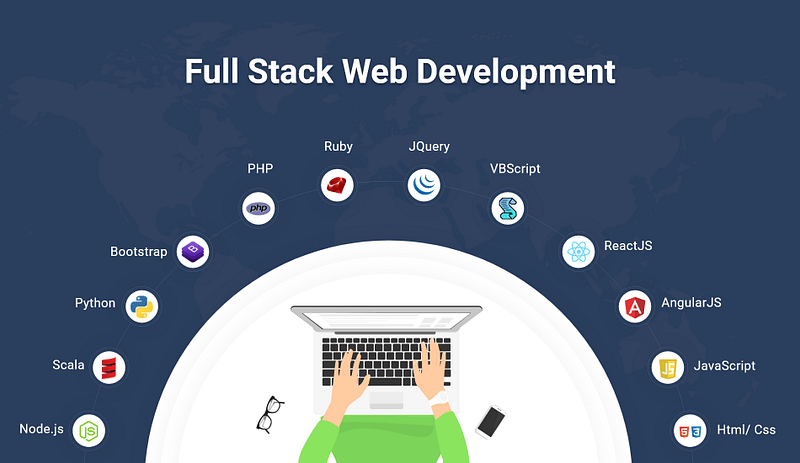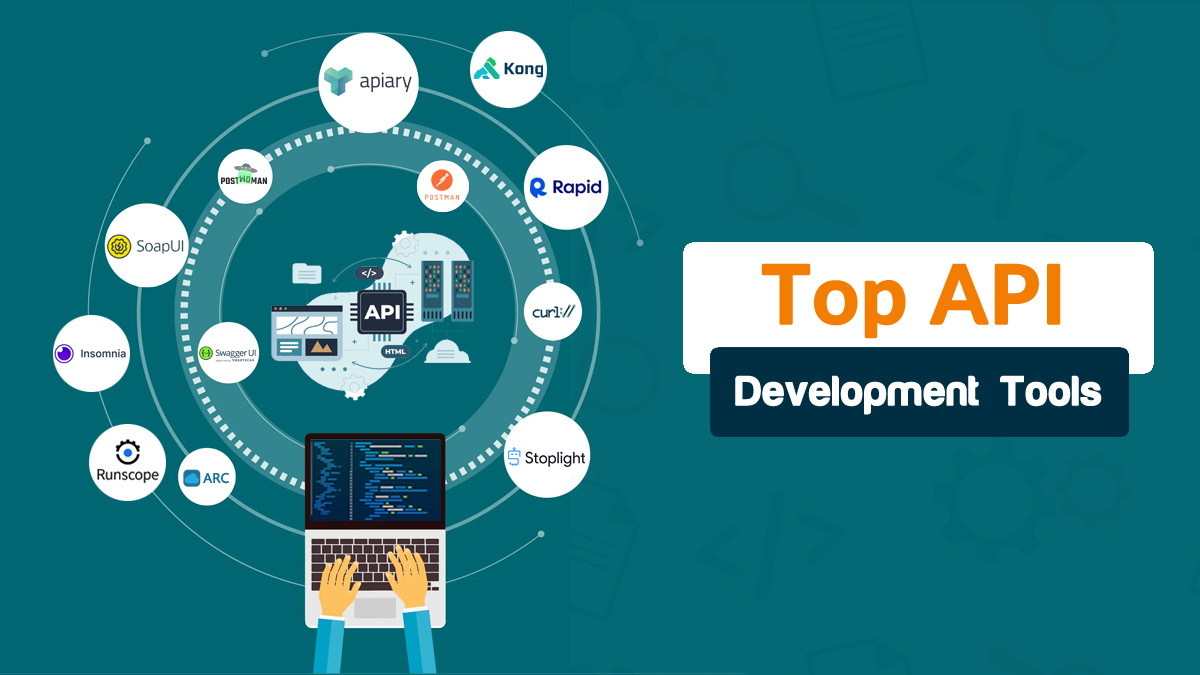10 Essential Tools Every Full Stack Developer Should Know
 ashik imam
ashik imamIntroduction:
In today's rapidly evolving technological landscape, full stack development has emerged as a cornerstone of web development. A full stack developer is proficient in both front-end and back-end technologies, capable of handling every aspect of web application development. However, mastering the craft of full stack development requires more than just coding skills. It entails familiarity with a plethora of tools and technologies that streamline the development process and enhance productivity. In this article, we'll explore ten essential tools that every aspiring full stack developer should know.

Integrated Development Environments (IDEs):
IDEs are essential tools for full stack developers as they provide a comprehensive environment for coding, debugging, and deploying applications. Popular IDEs like Visual Studio Code, IntelliJ IDEA, and Sublime Text offer features such as syntax highlighting, code completion, and version control integration, making them indispensable for efficient development workflows.
Version Control Systems (VCS):
Version control is crucial for managing codebase changes and collaborating with other developers. Git, a distributed version control system, reigns supreme in the developer community due to its flexibility and robustness. Platforms like GitHub, GitLab, and Bitbucket provide hosting services for Git repositories, enabling seamless collaboration and code sharing among team members.
Command Line Interface (CLI) Tools:
Proficiency in command line tools is essential for full stack developers to perform various tasks efficiently. Tools like npm (Node Package Manager), yarn, and Homebrew facilitate package management and dependency installation. Additionally, CLI-based utilities like Docker and Kubernetes simplify containerization and orchestration, enabling scalable and portable application deployment.
Web Frameworks:
Web frameworks streamline development by providing pre-built components and structures for building web applications. For front-end development, frameworks like React.js, Angular, and Vue.js offer robust solutions for creating interactive user interfaces. On the back end, frameworks like Express.js (for Node.js), Django (for Python), and Ruby on Rails accelerate server-side development, enabling rapid prototyping and deployment.
Database Management Systems (DBMS):
Full stack developers must be proficient in working with databases to store and retrieve application data efficiently. SQL-based DBMS like MySQL, PostgreSQL, and SQLite are widely used for relational database management, offering robust features for data modeling and querying. NoSQL databases like MongoDB and Firebase are also gaining popularity for their flexibility and scalability in handling unstructured data.

API Development Tools:
APIs (Application Programming Interfaces) play a crucial role in enabling communication between different software components. Tools like Postman, Swagger, and Insomnia simplify API development and testing by providing intuitive interfaces for designing, documenting, and debugging APIs. These tools streamline the process of building RESTful or GraphQL APIs, ensuring seamless integration with front-end and back-end systems.
Browser Developer Tools:
Full stack developers must be proficient in debugging and optimizing web applications for performance and compatibility across different browsers. Browser developer tools like Chrome DevTools, Firefox Developer Tools, and Safari Web Inspector offer powerful features for inspecting and manipulating HTML, CSS, and JavaScript in real-time. These tools enable developers to diagnose issues, profile performance, and improve the user experience of web applications.
Continuous Integration/Continuous Deployment (CI/CD) Pipelines:
CI/CD pipelines automate the process of building, testing, and deploying applications, ensuring rapid and reliable delivery of software updates. Platforms like Jenkins, Travis CI, and CircleCI facilitate the implementation of CI/CD pipelines, enabling full stack developers to automate repetitive tasks and maintain high code quality throughout the development lifecycle. By integrating CI/CD into their workflows, developers can accelerate time-to-market and minimize deployment risks.
Containerization Tools:
Containerization has revolutionized the way applications are deployed and managed, providing lightweight and portable environments for running software components. Docker, the de facto standard for containerization, allows full stack developers to package applications and their dependencies into containers, ensuring consistency and reproducibility across different environments. Container orchestration platforms like Kubernetes further enhance scalability and resilience, enabling seamless deployment and management of containerized applications.
Performance Monitoring and Logging Tools:
Monitoring and logging are essential for identifying performance bottlenecks, detecting errors, and optimizing the overall health of web applications. Tools like New Relic, Datadog, and Splunk provide real-time insights into application performance, infrastructure metrics, and user behavior, enabling full stack developers to proactively identify and resolve issues before they impact end-users. By leveraging performance monitoring and logging tools, developers can ensure the reliability and scalability of their applications in production environments.
Conclusion:
Mastering full stack development requires more than just coding skills; it demands proficiency in a diverse range of tools and technologies that streamline the development process and enhance productivity. By familiarizing themselves with the essential tools outlined in this article, aspiring full stack developers can build robust, scalable, and performant web applications that meet the demands of today's dynamic digital landscape. Continuous learning and experimentation with these tools are key to staying ahead in the ever-evolving field of full stack development. Enroll now Full Stack Development Training Course in Gurgaon, Kanpur, Dehradun, Kolkata, Agra, Delhi, Noida and all cities in India.
Subscribe to my newsletter
Read articles from ashik imam directly inside your inbox. Subscribe to the newsletter, and don't miss out.
Written by
